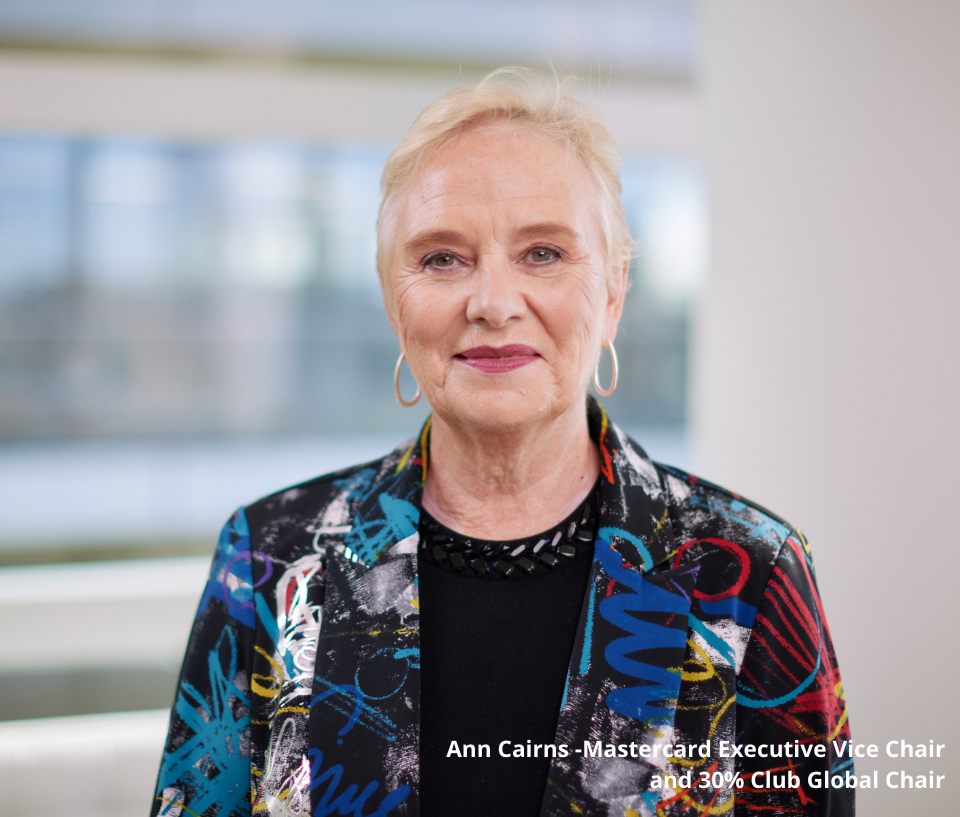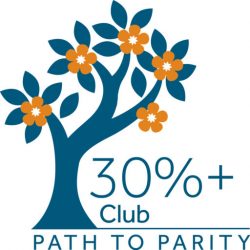London, UK, 19 July 2022: The FTSE 100 is ahead of the S&P 500 and TSX 60 in diversity and inclusion, according to exclusive research for the 30% Club Global Investor Group by Diversio. But a significant number of employees do not feel included at work.
Diversio scraped negative employee reviews of companies and analysed these reviews for content.
Diversio found that 79% of negative reviews (ie dissatisfied employees) cited inclusion related
issues as the reason for their dissatisfaction.
The FTSE 100’s overall score for diversity, inclusion, and commitment, Diversio’s key metrics for assessing Diversity & Inclusion (D&I), is 65.7 out of a possible 100. Such a score indicates that programming, inclusion, and diversity are closely linked and mutually reinforcing, with higher scores indicating successful D&I policies, practices, and implementation.
The overall scores, based on analysis of publicly available corporate policies and employee reviews, were 58.8 for the American S&P 500 and 55.1 for the Canadian TSX 60. A quarter of each company’s score looked at gender, racial and ethnic diversity at the board and executive level. Another quarter looked at D&I programmes and policies. While half of the score was calculated using anonymous feedback from employees about their experience. These “inclusion metrics” represent the biggest opportunity for improvement.
Inclusion findings
Inclusion barriers fell into six broad categories: inclusive culture, fair management, career development, workplace flexibility, workplace safety, and recruiting and hiring.
| Inclsuive Culture | Fair Management | Career Development | Workplace Flexibility | Workplace Safety | Recruiting and Hiring | |
|---|---|---|---|---|---|---|
| FTSE Average | 6.08 | 6.25 | 6.81 | 6.86 | 6.64 | 6.83 |
| Global Average | 5.81 | 5.94 | 6.08 | 6.29 | 6.32 | 6.36 |
Top scoring companies across all KPIs include:
Pershing Square Holdings, Mondi, and Segro.
Among the 27-inclusion metrics Diversio analysed, inclusive culture and fair management were the most prominent among FTSE 100 companies. Commonly cited pain points cited included issues such as:
● “Very old school management style, which is male, middle-age dominated”
● “Domineering/bullying management styles tolerated. Highly political and full of silos”
● “Profit driven with constant cost cutting at the expense of everything”
● “Limited promotional opportunities from within. Average pay Culture in upper management.”
● “Stressful work environment and hard to strike a work life balance.”
Diversity findings
On the plus side, the research found there has been progress on gender diversity at the board level across the indices, with female representation now at 40% for the FTSE 100. Gender diversity at the executive level sits much lower, at 26%.
Racial and ethnic diversity for the FTSE 100 companies have an average of 14% representation at the board level and 13% representation at the executive level.
For the full methodology, see Appendix.
Laura McGee, co-founder and CEO of Diversio, said: “The quickest way for low-scoring sectors and companies to improve is by surveying employees and implementing fundamental programmes and policies, including a DEI strategy with executive level accountability and transparent reporting. Survey data can help leaders understand company culture and any barriers that might be faced by under-represented groups.”
Ann Cairns, global chair of the 30% Club, said: “What the analysis means for companies is that it’s critical to track not just diversity but also inclusion. All companies should have fundamental DEI programmes and policies in place and need to listen to employees to identify pain points and create a smooth funnel to leadership.”
Table: How the three indices stack up against each other, data provided by Diversio.
| FTSE 100 | S&P 500 | TSX 60 | |
|---|---|---|---|
| Overall diversity, Inclusion, and commitment score (out of a possible 100) | 65.7 | 58.6 | 55.9 |
| % Women at board level | 40.1% | Not enough data | Not enough data |
| % Women at executive level | 25.6% | 23.3% | 18.9% |
| % Racial/ethnic diversity at board level | 13.9% | Not enough data | Not enough data |
| % Racial/ethnic diversity at exec level | 13% | 13.8% | 10.6% |
| % Racial/ethnic diversity of total population (census data) | About 15% (2019 census data) | About 38% (2020 census data) | About 22% (2016 census data) |
| Best 3 performing sectors | Real estate, energy, information technology | IT, financials, real estate | Real estate, utilities, financials |
| Worst 3 performing sectors | Financials, utilities, consumer discretionary | Materials, consumer discretionary, energy | Industrials, IT, consumer staples |
ENDS
Appendix
Diversio Insights methodology
The Diversio Scores
The Diversio Insights platform scores companies in four main ways: diversity, inclusion, commitment, and an overall average. The diversity score is made up of the gender and racial diversity of the board and executive teams of a company. Optimal diversity scores are given to companies with executive and board diversity that correspond with percent representation observed in the population. Diversity data is collected through Mechanical Turk, by scraping company websites or SEC filings. The data is then labelled through a combination of human expertise and algorithms, assigning gender and race/ethnicity to each executive and board member. 1 We then provide the companies with the opportunity to confirm or correct their public data through direct outreach. The commitment scores are determined using a score of 0 – 3 based on the published documentation surrounding a firm’s policy and governance, recruiting practices, employee engagement, and transparency and data disaggregation. The inclusion score is determined by scraping employee reviews of their companies and having our algorithms identify patterns in employee reviews regarding the barriers employees face every day. These patterns are classified into pain-points from a predetermined set of 27 pain points. Companies with the least pain points score the most highly, while companies with the most pain points score the lowest.
Limitations and Data Accuracy
All of our data is based on publicly available information at the time of its collection. Diversio recognises that there are limitations to this methodology. We do not have real time data and could show some information that is 6 months to 1.5 years out of date. We are not able to update our database every time a company institutes a new policy. We cannot be responsible for how often a company updates their public facing image. If the makeup of a board changes without a public facing announcement, our database cannot reflect the new addition.
Contact: 30% Club campaign manager Laura Whitcombe, laura@30percentclub.org, or media@30percentclub.org
Website: www.30percentclub.org Twitter: @30percentclub
Notes to Editors
Diversio found that about 97% of companies on the FTSE, TSX, and S&P have implemented D&I programmes and policies. However, the data makes clear that these commitments alone will not create a diverse and inclusive workplace. Companies are encouraged to survey employees to understand inclusion barriers, and double down on advancement opportunities for underrepresented employees.
The analysis reveals the best performing sectors for D&I in the FTSE 100 are real estate, energy, information technology. The worst were industrials, utilities, consumer discretionary.
About Us : The 30% Club is a global campaign led by Chairs and CEOs taking action to increase gender diversity at board and senior management levels of the world’s biggest companies. We set targets of a minimum of 30% female representation at the board and executive committee levels. This is the critical mass at which research shows minority voices are heard. However, the ultimate goal is parity.
Under the leadership of Global Chair, Ann Cairns, the campaign continues to expand its international footprint with presence in 20 countries around the world. We support diversity in its very broadest sense and while gender has been our starting point, we fully realise that considerations of ethnicity, disability, sexual orientation, socioeconomic background and beyond are all part of the journey – and that gender identities are themselves evolving rapidly. We believe that only those organisations that foster truly inclusive cultures – cultures that embrace women who look, act and, importantly, THINK differently – can reach their full potential to positively impact their people, their markets and their communities.
30% Club UK Chapter’s 2023 Targets
- 1. Beyond 30% representation of women on all FTSE 350 boards, to include one person of colour. We support the Parker Review goals for at least one person of colour on every FTSE 350 board – in addition, we advocate for gender balance with half these seats going to women, creating 175 board seats for women of colour.
- 2. Beyond 30% representation of women on all FTSE 350 Executive Committees, to include one person of colour. We advocate for gender balance with half these seats going to women, creating 175 executive committee roles for women of colour.
- 3. Beyond 30% of all new FTSE 350 Chair appointments to go to women between now and 2023.
About Diversio: Global leader in the use of AI technology and sophisticated data analytics to
measure, track and improve D&I, working across 35+ countries and 25+ sectors.










